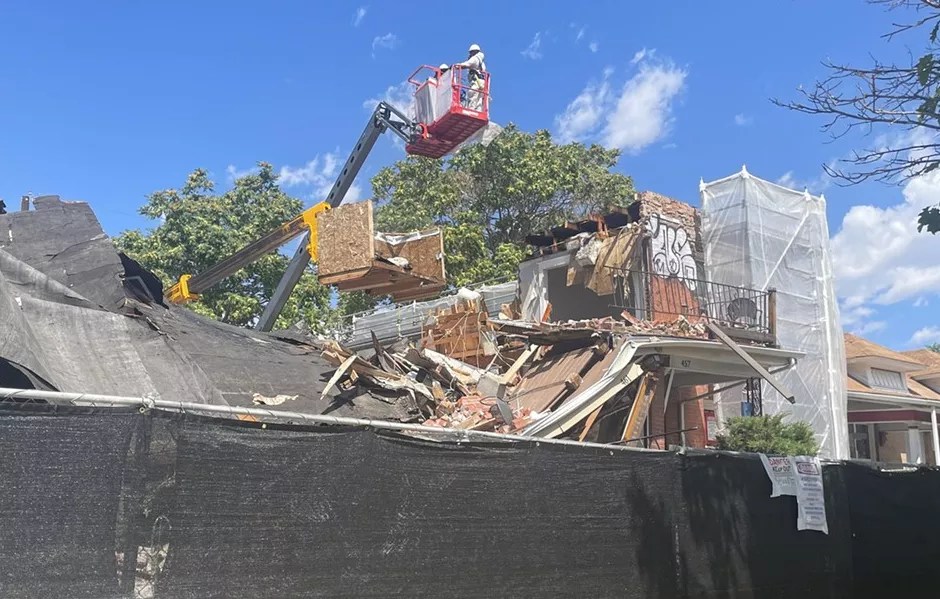
Catie Cheshire

Audio By Carbonatix
Denver City Council officially passed legislation intended to deal with the city’s growing neglected building issue on July 14.
In 2024, Denver added 160 buildings to the city’s neglected and derelict building list, which documents properties that sit vacant and cause problems for neighbors. This includes abandoned homes and, in some cases, properties that have become nothing more than piles of debris.
“Residents and the city alike have been frustrated with how long it can take to bring problem properties into compliance,” Councilwoman Amanda Sawyer said of the new rules. “This updated ordinance streamlines enforcement, enhances public safety, and is a good governance measure. I could not be prouder of the collaboration and work done by everyone on this bill.”
Sawyer and councilmembers Paul Kashmann and Jamie Torres sponsored the initiative. The new rules change the process for dealing with problematic buildings from a required show-cause hearing, which can take months to set up, to a remedial plan assessment meeting. If a property owner does not meet with the city within sixty days, that property can be issued citations. Additionally, the law increases fines on violations from $999 per day to $5,000 per day for offenders violating the terms of remedial plans or ignoring meeting requests from the city.
Will you step up to support Westword this year?
At Westword, we’re small and scrappy — and we make the most of every dollar from our supporters. Right now, we’re $22,000 away from reaching our December 31 goal of $50,000. If you’ve ever learned something new, stayed informed, or felt more connected because of Westword, now’s the time to give back.
The rules also require an annual report to city council by the Denver Department of Community Planning & Development, and institute a fee of $5,000 per response from fire, police or emergency services when three or more calls for service occur within a six-month period.
“Stronger enforcement tools for Community Planning & Development, earlier collaboration with property owners, and additional requirements for city agency cooperation will dramatically increase Denver’s ability to address the public health and safety concerns these buildings pose to our city,” Kashmann said.
As of April 2025, 285 NADB properties were counted in Denver. The list is mostly made up of single-family homes, but commercial properties and forty historic properties are also included. Every council district currently has properties on the list.
Notable vacant properties around Denver include a fourplex that exploded on Lincoln Street and took nearly a year to be demolished and a home owned by Habitat for Humanity that has caused thousands of dollars in property damage to the home next door, according to that homeowner. Bail Row, a line of former homes turned into bail bond offices on Delaware Street, has also become a visible showcase of abandoned buildings in Denver.
In addition to faster remedial plans, the ordinance’s supporters believe the new legislation should allow for more equity. Some properties are owned by bad actors taking advantage of Denver’s lack of enforcement tools, while others are owned by people struggling to afford upkeep or circumstances like incarceration or disability that make home upkeep difficult, according to councilmembers.
The new ordinance would let the city petition Denver District Court to issue preliminary injunctions against property owners for continued violations if they ignore citations or fail to pay fines within thirty days. If that injunction is ignored and the owner still fails to pay fines, the city can seek court-ordered abatement or appoint a receiver to control and remediate the property.
“Neglected and derelict buildings aren’t just eyesores – they create real health and safety risks and worsen inequities in housing and neighborhood investment,” Torres said. “This policy ensures that we hold property owners accountable while prioritizing the quality of life for all Denver residents.”
The ordinance is set to go into effect in February 2026.